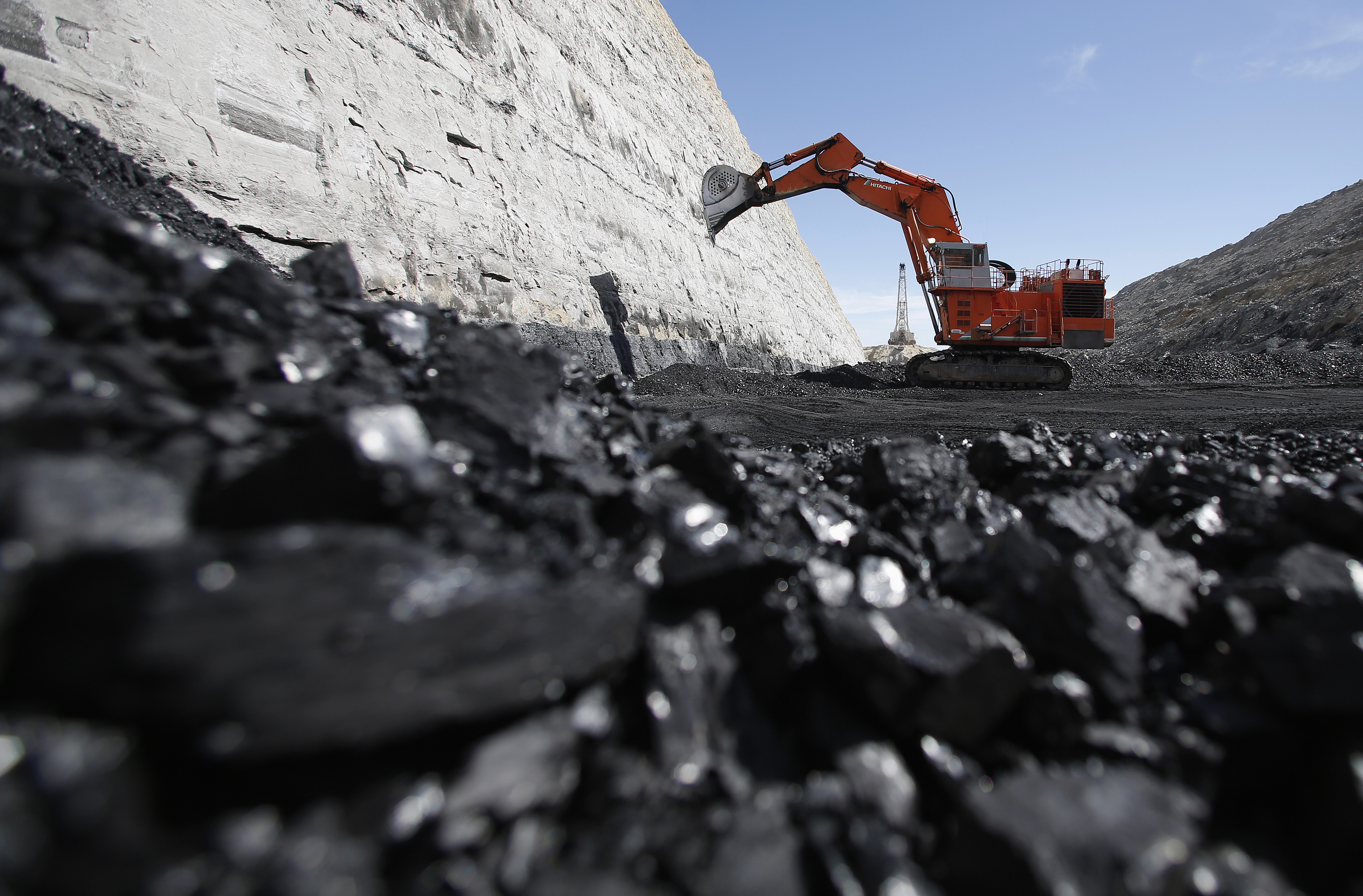Why Uncle Sam needs to clean up coal country
Bankrupt coal companies might leave state and local governments on the hook for billions in environment damage


A free daily email with the biggest news stories of the day – and the best features from TheWeek.com
You are now subscribed
Your newsletter sign-up was successful
Coal mining is in a state of slow-motion collapse. Three of the industry's biggest players — Peabody Energy, Arch Coal, and Alpha Natural Resources — have filed for bankruptcy within the last year. As they shutter their doors, they leave behind ruined landscapes throughout Pennsylvania, Kentucky, West Virginia, Wyoming, and the rest of coal country: abandoned mines, dynamited mountain tops, piles of refuse and polluted rivers and valleys.
Environmental groups and state and local governments are increasingly worried they're going to be stuck with the cleanup bill. If that happens, then Uncle Sam needs to step in.
Here's the situation: Federal law actually requires coal companies to clean up and restore the sites they mine, and to ensure there's money to do so even if the coal company goes bust. Alpha and Arch Coal have about $900 million in cleanup obligations in Wyoming alone, for example. Peabody has $800 million in that state, and $1.4 billion nationally.
The Week
Escape your echo chamber. Get the facts behind the news, plus analysis from multiple perspectives.

Sign up for The Week's Free Newsletters
From our morning news briefing to a weekly Good News Newsletter, get the best of The Week delivered directly to your inbox.
From our morning news briefing to a weekly Good News Newsletter, get the best of The Week delivered directly to your inbox.
Estimates place the total amount of cleanup obligations nationwide for the industry at around $7.8 billion. About $4.2 billion of that is financed by bonds the companies have bought — essentially insurance policies, in which the coal companies paid third parties ahead of time to take care of their mess in the case of bankruptcy.
But several states changed their laws over time to allow the coal companies to engage in what's called "self-bonding." That's a fancy term for the coal companies pinky-swearing that when the time comes, they'll have enough cash on hand to cover the cleanup costs. "Essentially, companies told regulators they had enough money to reclaim their mines, and in turn the regulators made a bet that the companies were right, and didn't require them to pay a third party to ensure that costs would be covered," as Zoë Carpenter wrote in The Nation.
Of course, the problem is that being in bankruptcy means these coal companies have more debt than they can pay. Debt is ultimately a legal obligation, which is why it gets enforced by the government and why bankruptcy proceedings are handled in court. When all the debt can't be paid, it's the judicial system's job to decide who gets the money first and who among the creditors has to take a haircut. Much of the coal industry's debt has been bought up by members of the financial industry who wield considerable political clout — and they could demand a coal company's remaining cash if it goes bankrupt. In that case, the cash won't be around to cover the "self-bonds."
Fortunately, some states, like Kentucky and Pennsylvania, never got on the self-bonding bandwagon. And in West Virginia, the practice only accounts for $245 million in cleanup obligations, versus $704 million in actual bonds.
A free daily email with the biggest news stories of the day – and the best features from TheWeek.com
But self-bonding accounts for a spectacular $2.25 billion in Wyoming, versus just $699 million in other bonds. And it outpaces regular bond obligations in Texas, Indiana, North Dakota, and Colorado as well. Nationwide, self-bonding is estimated to cover $3.6 billion.
That's an awful lot of money for state and local governments to cover. Lucky, the White House has shown a willingness to step in — just not to the extent it needs to. Its proposed POWER+ plan to help coal country only dedicates $1 billion to cleanup specifically.
Hillary Clinton has also proposed a $30 billion aid package to coal country, which is more than sufficient to cover cleanup costs. (Whether it's enough to get the region back on its feet economically, once the coal industry dies, is another matter.) Donald Trump has been unsurprisingly unspecific.
But both the White House's and Clinton's proposals would have to get past Congress, where coal country politicians like Senate Majority Leader Mitch McConnell insist the money can only be spent if Obama and the Democrats back off from climate regulations.
This is, of course, a ridiculous position: Climate change is a major threat and the coal industry was dying well before Obama's Clean Power Plan was even a glimmer in policymakers' eyes. More importantly, cleaning up and restoring the places despoiled by the coal industry is the very definition of a public good: It will provide people employment in the short-term, and over the long-term it will give these states and their communities valuable natural environments that can be used for tourism or preservation, paying off for generations to come. This is exactly the sort of project the federal government was meant for.
There's an understandable moral principle at work in forcing the coal industry or the financial industry to take care of the cleanup themselves. But the American people shouldn't have to go begging to them for the money to make it happen. And they don't have to.
Jeff Spross was the economics and business correspondent at TheWeek.com. He was previously a reporter at ThinkProgress.
